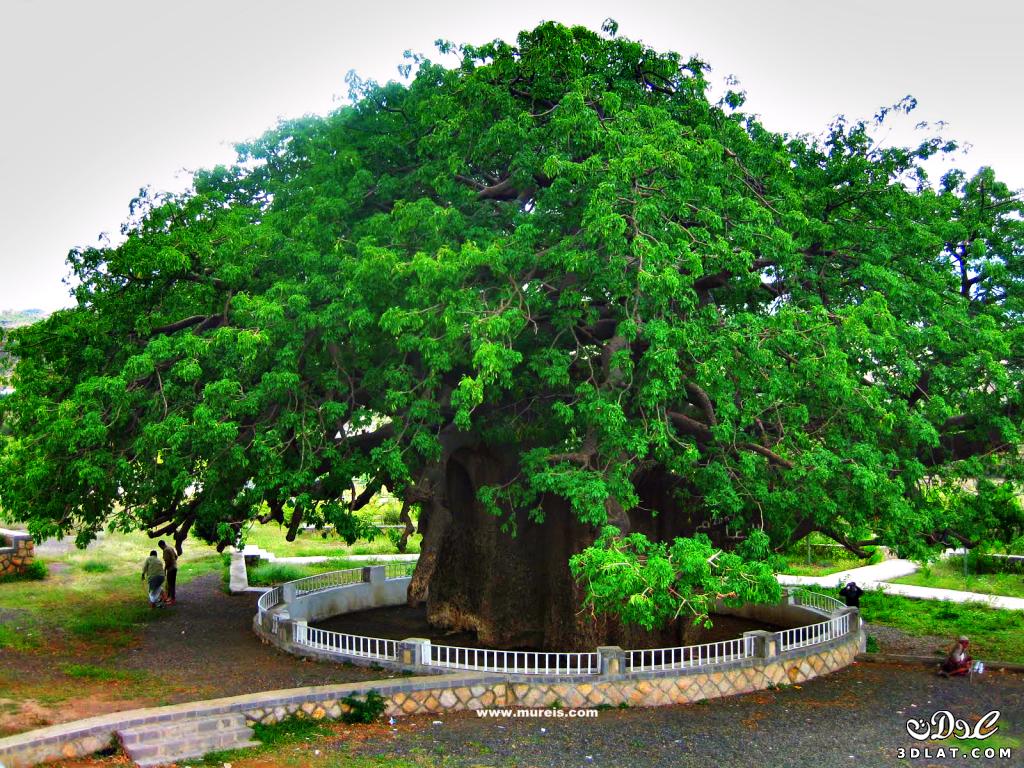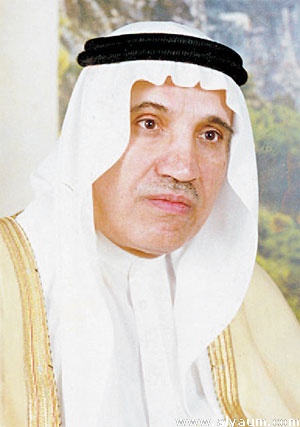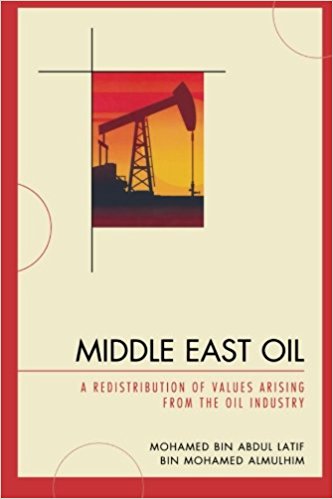|
تعليق : |
|
|
|
الكاتب: جريدة اليوم الثقافية
الناشر: جريدة اليوم- العدد:6547
تاريخ النشر: 19/ 5/1991م
الرابط:أحدث كتاب عن بترول الشرق الاوسطصدر مؤخرًا أحدث كتاب عن بترول الشرق الاوسط عام 1991م ..باللغة الإنجليزية. والكتاب من تأليف معالي الدكتور محمد بن عبداللطيف الملحم.. أما ترجمة عنوان الكتاب فهو: (بترول الشرق الاوسط.. اعادة توزيع القيم الناتجة من صناعة الزيت).
ويستمد الكتاب أهميته من المعلومات القانونية والاقتصادية والدراسات التحليلية الخاصة بهذا المصدر الاستراتيجي للطاقة والدخل في منطقة الشرق الاوسط، ويقع الكتاب في 350 صفحة من الحجم المتوسط والمجلد تجليدًا فاخرًا.
ومجال هذا الكتاب مجال قانوني ذو طابع إقتصادي وسياسي، والمجال القانوني هو القانون الدولي العام، والقانون الدستوري، والقانون المدني المنظم لعلاقات التعاقد. أما الطابع الاقتصادي والسياسي فهو ينصب في المحل الاول على البترول في الشرق الاوسط باعتباره، مادة استراتيجية.
يتكون الكتاب من أربعة أجزاء:
ـ الجزء الاول: ويشتمل على دراسة تفصيلية لنظام الامتيازات ومدى التحولات القانونية التي طرأت عليه.
ـ الجزء الثاني: ويوضح سياسات المجتمع الدولي في مجال نمو وتطور الثروات البترولية ومدى هيمنتها العالمية والاقليمية.
ـ لجزء الثالث: يشتمل على مناقشة موضوعية للقرارات والاحكام القضائية والمشاكل القانونية التي صاحبت نمو وتطور صناعة البترول في الشرق الاوسط منذ عام 1908م وحتى عام 1970م وبالأخص مناقشة فكرة مبدأ سيادة الامم والشعوب على ثرواتها الطبيعية والمعدنية وكذلك فكرة تملك الدولة لمصادر الثروة الطبيعية والمعدنية.ـ الجزء الرابع: على تقييم شامل لكل أوضاع البترول وصناعته في الشرق الأوسط ومع تقديم التوصيات والتوجيهات في صالح رفاهية صناعة البترول نفسها.
كما تطرق الكتاب إلى بعض الفرضيات القانونية وبالذات فكرتي شرعية العقود ونظرية تغير الظروف الدوليتين، ومدى هيمنتها على أممية عالم البترول كما تعرض الكتاب كذلك لدور المملكة العربية السعودية في المجال البترولي وخاصة في مجال العلاقة مع شركات الامتياز والاثآر الايجابية للدخول البترولية في مجال التنمية السعودية من الناحية الصحية والتعليمية والعمرانية والصناعية.
والكتاب من الأهمية لدرجة أنه لا غنى للمكتبات ومراكز المعلومات عن اقتنائه وخاصة أنه يعتبر كتابًا مميزًا وفريدًا في موضوعاته.
وتوزع الكتاب عن دار المريخ للنشر بالرياض وجدة والدمام.المصدر: جريدة اليوم، اليوم الثقافي، ص/9،
العدد رقم 6547 وتاريخ 5/11/1411هـ الموافق 19/ 5/1991م |
|
|
تعليق : |
|
|
|
الكاتب: OPEC Bulletin
الناشر: OPEC Bulletin, p. 21
تاريخ النشر: October 1991م
الرابط :Book Review: Middle East Oil – A Redistribution Of Values Arising From The Oil Industry by Dr. Mohamed A. Almulhim. University Press of America, Inc.
4501 Forbes Boulevard, Suite 200
Lanham, MD 20706, U.S.A.A new book on the effects of the concession system on the Middle East oil industry is reviewed by Dr Mohammed A Al-Sahlawi, Head, Department of OPECNA & Information. OPEC Bulletin, p. 21, October 1991In this book, Dr Almulhim addresses the legal and political aspects of natural resources exploitation under the system of concessions. His aim is to analyze the effectiveness of this system in developing the Middle Eastern oil industry, and determine to what extent the system has affected values distribution among the grantors and the concessionaires.
He believes that the great human values derived from the exploitation of oil—such as wealth, power, well-being, skill, enlightenment, respect, affection and rectitude—should be redistributed among all the participants in the oil business. Accordingly, Dr Almulhim tries to assess how this objective might be realized in the practical, political world.
In the authors own words, “the necessary redistribution of values arising from the oil industry in the Middle East can best be legally, politically and economically achieved through co-operation, mutual respect, and a genuine desire for justice”. Most interestingly, the author has managed to draw together the diverse threads of Middle Eastern mining law as they have emerged this century, comparing these to the traditional tenets of Islamic Law.
The study is divided into four parts with subchapters. The first part deals with the problems of the oil business generally: the major players, their motives, power-bases and decision-making apparatus. The second part examines the interests of the wider world community in the development of oil resources, alongside a portrayal of the more exclusive interests of the oil exporting countries. The system of concessions and joint ventures is investigated in the third part of the book, which proceeds to examine the background and present status of the principle of state participation in national oil industry operation in the region, albeit concentrating on Saudi Arabian jurisdiction.
Halfway through an analysis of applicable treaty law, the author takes time to assess the provisions and objectives of the Organization of the Arab Petroleum Exporting Countries (OAPEC) along side those of OPEC. Some little known facts come to light. For example, relations between the two organizations are provided for in part by Article 3 of the OAPEC Statute, which stipulates that OAPEC members shall be bound by the ratified resolutions of OPEC, even if they are not also members of OPEC. Among the conditioning factors emphasized are the efforts of the United Nations in the field of natural resources, the labour situation in the grantor countries and new trends of economic and legal commitments, recently introduced into the Middle Eastern oil industry.Arguably the most instructive section of the treatise compares the law of mineral ownership under three separate legal systems: the Anglo-American Common Law system, the European Civil Law model and four schools of Islamic law.
The fourth part makes a final appraisal of the effectiveness of the system of concessions in the early development of the Middle East petroleum industry and examines the consequences for the distribution of the technical skills, the wealth and power arising from the extraction and sale of oil. Dr Almulhim concludes with some recommendations, where by he hopes to encourage the regional establishment of legal regimes which share out the benefits more equitably.
The study includes a full name and subject index, together with a table of cases and references. |
|
|
تعليق : |
|
|
|
الكاتب: Yale Law School Alumni,Faculty,Staff,and Students
الناشر: http://www.law.yale.edu
تاريخ النشر:
الرابط: http://www.law.yale.edu/YLR/pdfs/v53-1/531books.pdfMakes an important contribution to the clarafication of the policies of the larger comunity
of humankind about an extraordinarily impotant set of problems;and explores, recommends,
and foretells imminent changes in both national and internationallaw |
|
|
تعليق : |
|
|
|
الكاتب: Myres S. McDougal
الناشر: Middle East Oil
تاريخ النشر: 1991م
الرابط:To Middle East Oil
BY
Myres S. McDougal
Sterling Professor of Law, Emeritus,
Yale Law SchoolIn his book, Middle East Oil, A Redistribution of Values Arising From the Oil Industry, Dr. Mohamed bin Abdul Latif Almulhim makes an important contribution to the clarification of the policies of the larger community of humankind about an extraordinarily important complex of problems; and explores, recommends, and foretells imminent changes in both national and international law.
Dr Almulhim defines the most general problem with which he is concerned in terms of facts: of events in community process about the distribution of control over, and benefits from, the production and exploitation of oil (an exhaustible, non-renewable, stock resource) as between the particular state in which the oil is first located and the other states, or the citizens of such states, in which the oil may be marketed and consumed. From this general problem there spins off a whole congeries of specific problems in both national and international policy and law, which Dr. Almulhim proceeds to delineate and explore.
The most general policies that Dr. Almulhim contraposes are those that derive, on the one hand, from the inclusive interests of the whole community of humankind and, on the other, from the exclusive interests of particular states. In appropriate balance, all these interests are equally common interests that law should respect and protect. The inclusive interests of the larger community relate to the stable, economic supply, through orderly and peaceful procedures, of a presently indispensable source of energy. The exclusive interests of particular states relate to a higher degree of control over, and enjoyment of, the potential values from a very unique type of resource located within their physical boundaries. It is in the accommodation of these contraposed policies in particular instances that law finds its greatest difficulties.
In his review of past trends in the making and application of national and international law, Dr. Almulhim takes us through a rapid kaleidoscopic history of changing systems of concession agreements, economic development agreements, joint ventures and servicing contracts, direct state participation, and state ownership and control. He expounds with clariy and high craftsmanship the details of these differing arrangements in control and exploitation, and in the distribution of benefits.
In reviewing the factors or conditions that have affected the rapid change in the balancing of policies and in institutional arrangements, Dr. Almulhim considers such items as economic backwardness, political domination, political immaturity, complexity of technology, demands for self-determination, rising demands and expectations with respect to all values, the creation of new international organizations for collaborative clarification and coordination of policies, the debates and resolutions in the United Nations relating to permanent sovereignty over natural resources and the human rights of peoples, and so on. The events are all too much with us to permit a comprehensive and systematic ordering of all the environmental and predispositional variables that are still affecting changes in policies and law.
In his recommendations of alternatives for the future Dr. Almulhim envisages a continued healthy balancing of the diverse interests of the particular state and the interests of the larger community. It is not surprising that he expresses a special sympathy for the interests of the exporting state, but it is to his credit that he is never narrowly parochial.
We are all in debt, whatever our particular loyalties, to Dr. Almulhim for a superb model of policy-oriented inquiry about a legal problem, or complex of problems, that is of great importance to all humankind |
|















